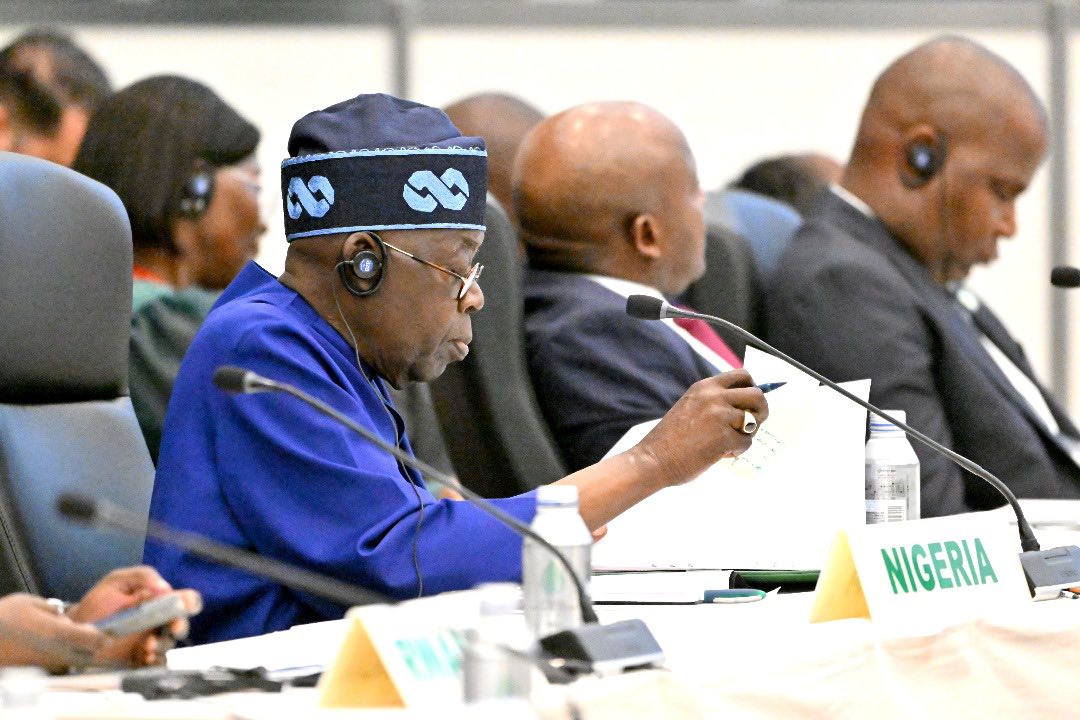The Lagos State Government at the weekend called for cooperation and vigilance among stakeholders across all economic spheres of the country in the war against money laundering and terrorism financing, describing it as a threat to global peace.
Declaring open a three-day strategic level anti-money laundering and countering terrorism workshop for senior officials of the Lagos State Government in conjunction with the International Institute for African Defence, Security & Governance, in Epe, Lagos, the state Commissioner for Finance, Abayomi Oluyomi, said the training is to enable the civil servants as critical stakeholders gain insights, skills, and strategies needed to enhance their professional capabilities and “contribute to the collective efforts to create a safer and more secure world.”
The commissioner, who was represented by the Permanent Secretary, Lagos State Treasury Office, and Accountant-General of the state, Dr. Abiodun Muritala, reminded the participants “that the fight against money laundering and terrorism financing requires continuous vigilance, adaptability, and a spirit of cooperation across borders and sectors.
“Your role in this mission is crucial, and your dedication is vital to our collective success,” he added, expressing confidence that the training will empower them to make a positive impact in their various Ministries, Departments and Agencies, and Lagos State at Large.
He also challenged the participants to make the results of all they learn felt in the days and years ahead in the journey to building a brighter and more resilient future for all.
Welcoming participants earlier, Major General (Retired) Emmanuel Whyte, Country Director of the International Institute for African Defence, Security & Governance, said the workshop’s theme “reflects an urgent and necessary call to action.”
Africa and indeed the globe, he continued, “are witnessing an evolving landscape of financial crimes, terrorism financing, and abuse of state systems.”
These, he told the participants, are manifesting in increased “illicit financial flows, procurement fraud, anonymous corporate structures, and weak internal control systems that continue to threaten our national security and development.
“As many of us are aware, Nigeria recently met the requirements for exiting the Financial Action Task Force (FATF) grey list. This effort demanded a whole-of-society response, and the role of our subnational actors, particularly strategic-level officials like yourselves cannot be overstated. Your vigilance, commitment, and leadership are essential to ensuring that Nigeria not only meets but sustains international AML/CFT standards,” he stressed.
Lagos, as Nigeria’s centre of excellence, he said, “must continue to build resilient governance systems that is capable of identifying and mitigating risks as well as protecting public resources from misuse and criminal infiltration.”
Also speaking on the essence of the training, Whyte said it “seeks to create preventive operational systems that aligns with national and international compliance standards. It is about strategic foresight, institutional discipline, and integrity of purpose. Driving a preventive organisational culture that can withstand pressure, systems that works, regardless of interference.”
Addressing newsmen on the sidelines of the workshop, Ade Shonubi, a facilitator said the programme is meant to educate senior civil servants in the state “on what money laundering is, what the risks and impacts are, both on the state and themselves as individuals.”
Many people, he regretted, do not understand what money laundering is, whether it is the proceeds of theft or kidnapping, stressing that the 2022 Act is more encompassing that that, as it touches their individual lives.
“Some of the things other people do in different countries touches us as Nigerians,” stressing that the more people that can be educated at sessions such as this, especially those involved in governance and carrying out service on the evil of money laundering, the better for everybody.
“A lot of people interact with them for one business or the other, and also the state government, especially Lagos State and if it were to be a country of its own it would be the fifth largest economy in Africa. As such, the impact Lagos State has on the country is quite significant.
“When we reviewed the peer group- Edmond Group, FATF that put us on the gray list, they talked to those who are in government and Lagos State will be one of them, and that is one of the reasons we need to educate the top civil servants of the state and get them to understand what money laundering is all about,” he stressed.
General Whyte further told newsmen that the training is important because the country and certain strategic level leaders ought to know that money laundering and financing terrorism affect Nigeria as a nation negatively.
The Financial Action Task Force (FATF), he stressed, has a list of actionable recommendations that affect nations, stressing that “Nigeria is, in fact, about exiting the gray list because we’ve met some of the require met some of the requirements.”
“Money laundering, when alluded to a country affects the financial integrity of that country’s economy. As such, this training is aimed, not just to create awareness, but bringing forth implementation plans that can help Lagos State ensure that their handling of public finances and procurement processes meet the international integrity standard, just as it will also impact positively on Nigeria.
“One of the things lacking in the eyes of foreign investors when it comes to doing business in Nigeria is that our financial dealings do not have integrity,” he added, noting that the participants will leave the training better informed to impact their MDAs positively when it comes to handling public funds and better placed to earn public trust by financial officers and procurement process.
Mrs. Saheed Rasheedat, Director, Project Financial Management Office of the State Treasury Office, a participant, said the workshop has exposed them to the danger posed by money laundering activities and how to check it, and not participate innocently in such activities especially as the Act does not excuse ignorance as public officers in the course of performing their duties.
“The workshop has thrown a lot of insights to help us guide ourselves while discharging our duties as public officers,” she added.
According to the organisers, Lagos State is pioneering the process which will be replicated the training across states and various sectors of the country’s economy.
The post Lagos Emphasizes Crucial Role of Civil Servants in Anti-Money Laundering War appeared first on THISDAYLIVE.





